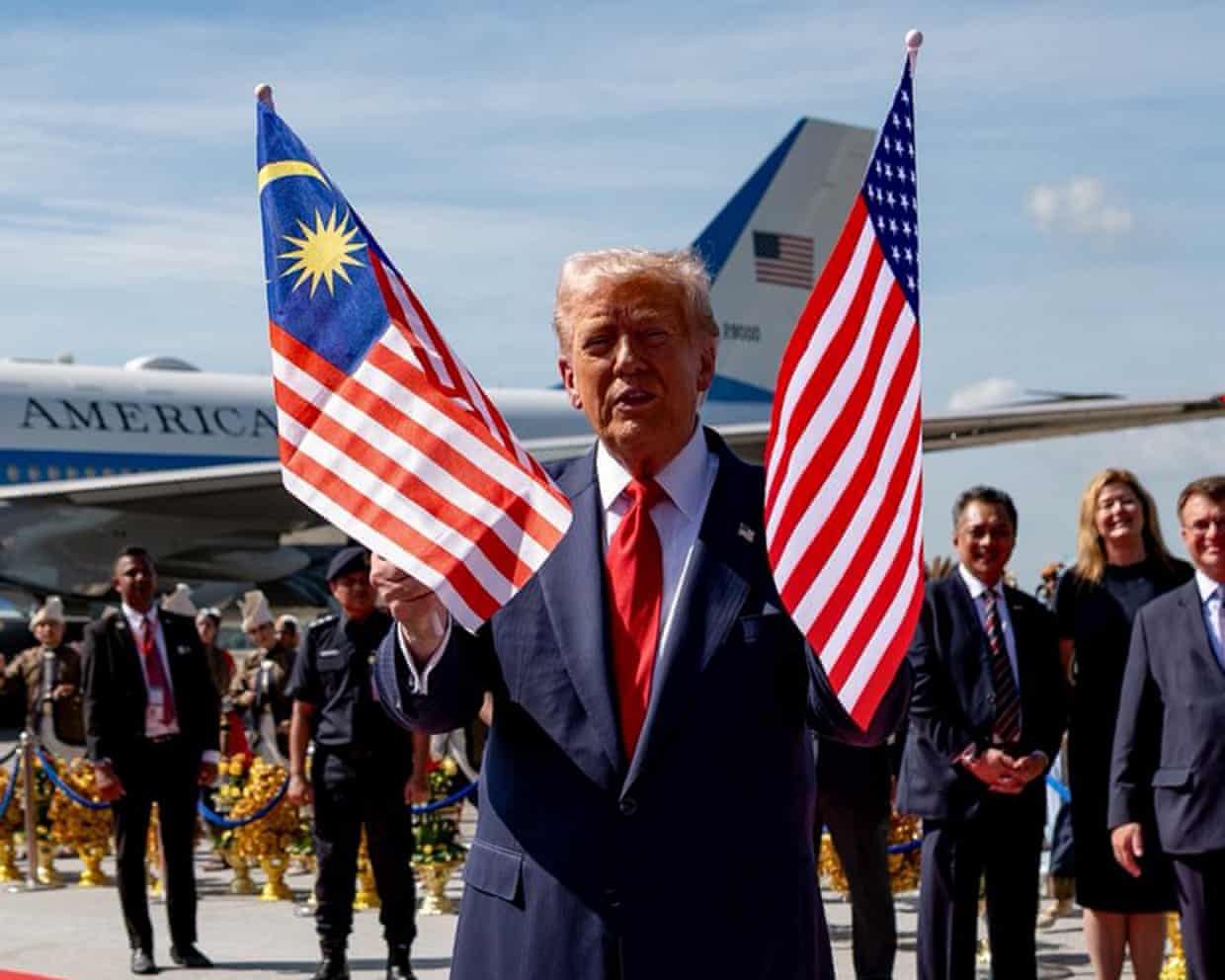
Kuala Lumpur: The Malaysian government has found itself on the defensive after opposition leaders, economists, and civil society groups voiced alarm over the newly signed U.S.-Malaysia trade agreement. Critics argue that the deal is “one-sided” and could compromise Malaysia’s economic sovereignty and foreign policy independence.
Tengku Zafrul Aziz, Malaysia’s Minister of Investment, Trade, and Industry, described the trade deal as “the best possible outcome for Malaysia.” He emphasized the pragmatic nature of the agreement, saying, “As a freely trading nation dealing with the world’s largest economic power — which is also our biggest trading partner — this is the geopolitical reality we face.”
Mahathir Mohamad’s Sharp Criticism
Former Prime Minister Mahathir Mohamad, known for his economic nationalism and long tenure as Malaysia’s leader, has emerged as one of the deal’s fiercest critics. He condemned several provisions of the agreement, claiming they effectively “hand over” Malaysia’s independence to washington.
“We agree to buy their airplanes, gas, and machines, obey their digital rules, give them first rights to our rare minerals, open our Markets on their terms, and follow their conditions on who we can or cannot do business with,” Mahathir stated, accusing the government of undermining Malaysia’s autonomy.
Details of the Trump Trade Pact
The bilateral trade deal — signed during former U.S. President Donald Trump’s visit to Kuala Lumpur last week — mandates Malaysia to remove or reduce tariffs on several U.S. goods. In return, the U.S. has pledged to retain its tariffs on Malaysian exports at 19%, except for a select list of products that will enjoy reciprocal tariff-free status.
| Key Provisions | Details |
|---|---|
| Tariff Reductions | Malaysia to reduce or eliminate tariffs on multiple U.S. goods. |
| Reciprocal Tariffs | The U.S. will maintain 19% tariffs on Malaysian goods, with select items having 0% tariffs. |
| Strategic Alignment Clause | Malaysia must align with U.S. sanctions and economic restrictions on third-party nations. |
| Termination Rights | Malaysia reserves the right to unilaterally withdraw from the agreement at any time. |
The Malaysian administration has hailed the deal as a major diplomatic and economic success that could enhance trade ties and attract U.S. investors to the country’s technology, manufacturing, and energy sectors.
Controversial Clause Raises Sovereignty Questions
Public discussion has centered on one controversial clause in the agreement, published by the White House, which obliges Malaysia to align with the U.S. on sanctions or trade restrictions against third countries.
Azmin Ali, an opposition legislator and former Minister of International Trade and Industry, warned that the clause could force Malaysia to follow U.S. directives even when they conflict with its national interests. “If Washington blocks imports from china or Russia, Malaysia will have to comply, even if it hurts our economy,” he said. He further argued that this condition would undermine Malaysia’s long-standing neutrality — a key feature of its foreign policy.
Growing Public and Political Backlash
The trade pact has drawn widespread criticism from politicians, academics, and NGOs across the political spectrum, including members of Prime Minister Anwar Ibrahim’s ruling coalition. Many have expressed concern that the agreement favors U.S. interests over Malaysia’s long-term economic independence.
Elina Noor, Senior Fellow at the Carnegie Endowment for International Peace, acknowledged that while the deal appears “highly biased,” it does not necessarily breach constitutional boundaries. She cautioned, however, that Malaysia must now work harder to avoid becoming “bound by the limits of other nations’ agendas.”
“The country must be diligent about not sleepwalking into long-term strategic alignment against its own interests,” Noor added, warning of the potential consequences of passive compliance with global powers.
Concerns Over Transparency and Oversight
The Center to Combat Corruption and Cronyism (C4 Center) issued a strong statement criticizing the agreement for potentially bypassing public procurement procedures and placing foreign investments beyond domestic scrutiny.
Pushpan Murugiah, CEO of the C4 Center, stated, “This deal gives away our right to make independent decisions. Some provisions require Malaysia to effectively seek permission before taking any action that could impact U.S. interests.”
Government Response and Next Steps
To ease mounting concerns, the Ministry of Investment, Trade, and Industry swiftly launched an official website featuring a 15-page FAQ document explaining the agreement’s clauses. The government’s chief legal adviser also clarified that Malaysia retains the unilateral right to terminate the deal at any point, ensuring the nation’s sovereign authority remains intact.
A special parliamentary committee has been tasked with reviewing the bilateral agreement next week. The outcome of this review is expected to shape the political and economic discourse surrounding Malaysia’s global trade strategy in the months ahead.
Balancing Growth and Sovereignty
As Malaysia navigates the complexities of global trade, the debate around the U.S. deal underscores a deeper dilemma — how to attract foreign investment and economic growth without sacrificing national autonomy. The government insists that the agreement strengthens Malaysia’s global standing, but critics fear it may tie the nation’s hands in international affairs.
In conclusion, the Trump-Malaysia trade pact represents both opportunity and risk. While it may boost trade relations with the United States, it has ignited an essential conversation on the future of Malaysia’s economic sovereignty, foreign policy independence, and democratic accountability.
For breaking news and live news updates, like us on Facebook or follow us on Twitter and Instagram. Read more on Latest World on thefoxdaily.com.





COMMENTS 0